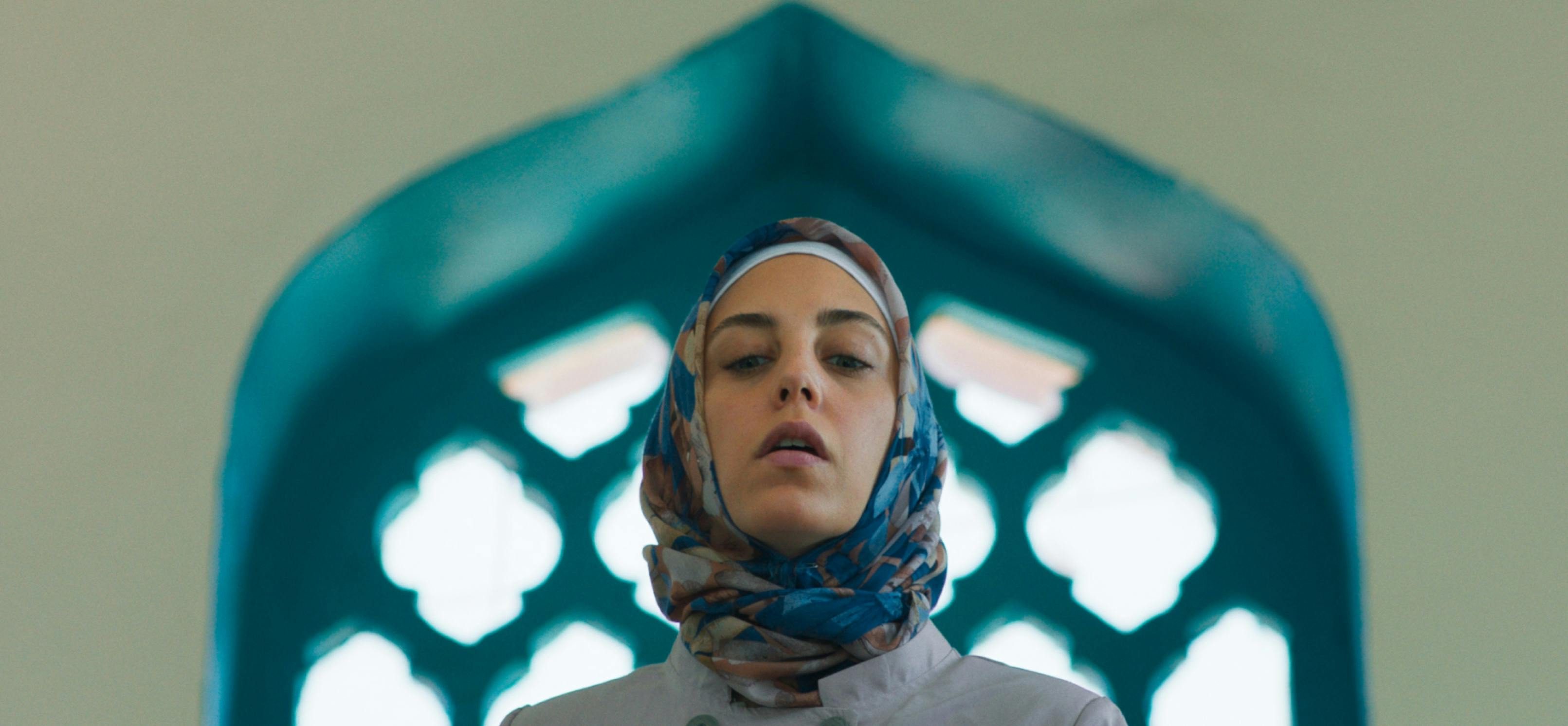Berkun Oya’s Ethos explores the undercurrents that unite us.
When Bir Başkadır (Ethos) landed in Turkey, it was an instant sensation. Writer-director Berkun Oya’s drama series is unlike anything that came before. Set in present-day Istanbul, it follows characters from disparate, complexly interwoven sociocultural backgrounds. In its first episode, it moves through a series of therapy sessions — a Russian doll’s worth of reveals that introduce the various worlds the protagonists occupy, their antagonisms and their interdependencies. As the season continues, the connections between them unfold in surprising ways, cracking open the door to a dialogue that, despite the real diversity of Istanbul and of Turkey, remains painfully elusive in a polarized society within a polarized world.
I had my interview with Berkun under special conditions due to the pandemic. Both of us were facing computer screens. He was in Bozcaada, an island in the northeastern part of the Aegean Sea. I was in Istanbul. We still managed to pretend that we were sitting in a cafe across from one another, sipping our coffee. Berkun is on a hectic schedule in Bozcaada. Celebrated as an author, playwright, screenwriter, and director, he is currently working on his new script. However, he does not want to reveal it just yet as it is not complete. During the course of our talk, he mentions that he would love to work with Netflix again someday: “They gave me the best thing that could be granted to someone doing what I do: freedom.”
We discuss Bir Başkadır and I can’t help but think of the lyrics to that Pink Floyd song: “Together we stand, divided we fall.” At the end of the conversation, I retreat to my designated place in “the aquarium we all live in.”
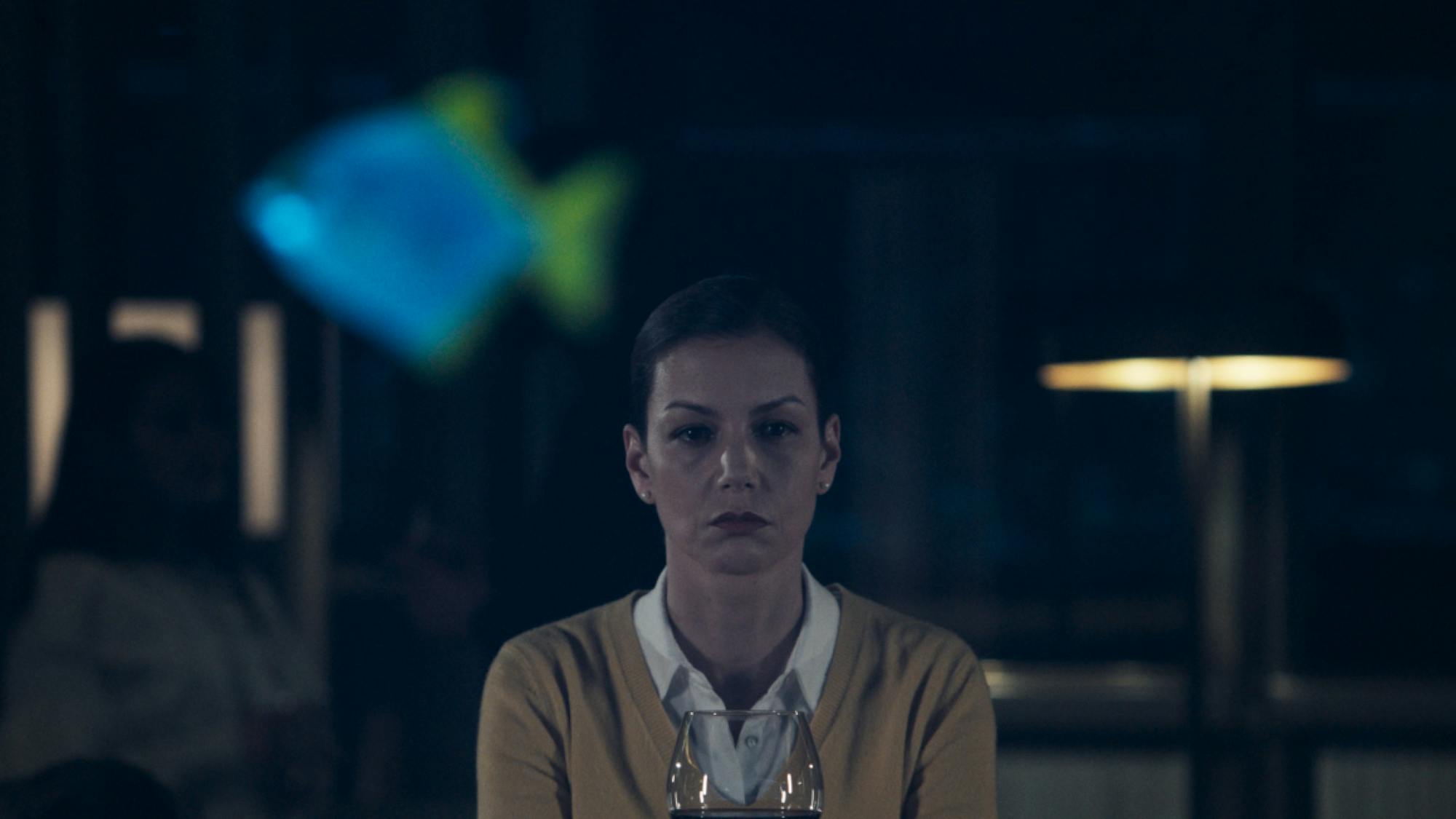
Defne Kayalar as Peri in Bir Başkadır
Yekta Kopan: The moment Bir Başkadır aired it became a cultural phenomenon in Turkey and a center of attention throughout the world. I wonder how you felt during the intense conversation that happened, especially on social media?
Berkun Oya: At first there was surprise. And then some more surprise. And then also a bit of concern. As people were sharing their takes on the series on rather extreme sides, I was concerned whether this work had a dividing effect unlike what I had imagined. I wanted to tell a unifying story; I believe we need this. I wanted to revisit how we coexist, so intertwined, indeed in a tight embrace with each other deep down even though there seem to be very sharp differences on the surface. I hoped to underline how these hidden transitive relationship networks enrich us as a society, because I believe the codes of the future are hidden in this richness.
Of course it was impossible to read everything written and catch up with everything said, but I did my best. I particularly tried to learn from the negative feedback. There was some I agreed with; there are places where I wish I could have done more precise work. A weak point in a play I made a decade ago can still keep me awake at night. I am glad it is this way; it motivates one to do better. A useful criticism is always more beneficial than a heavy award statuette.
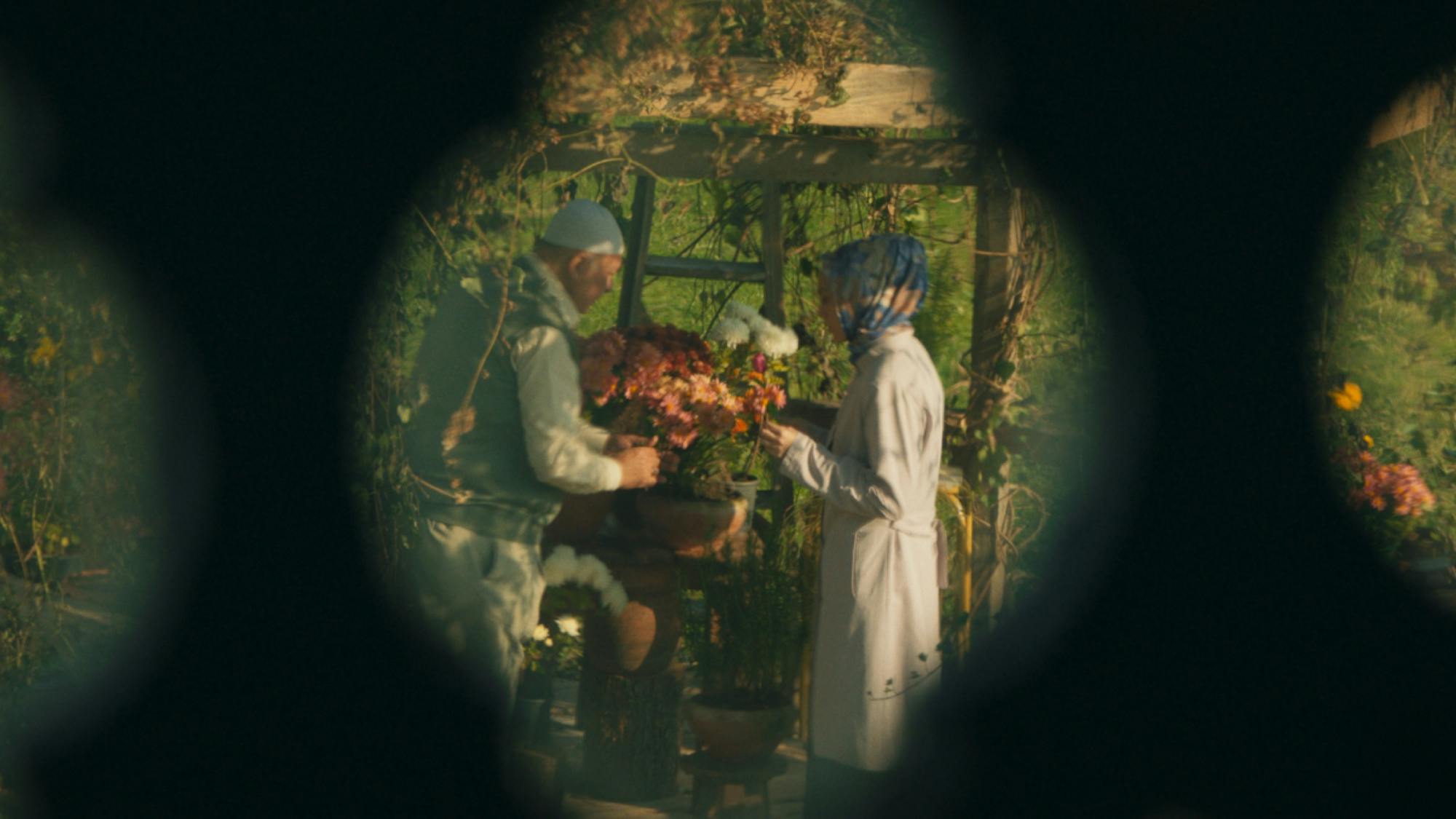
Meryem (Öykü Karayel) meets with her Hodja for some advice
In this nightmare of polarization that the world has fallen into, your work brought us to the edge of a prospect of unification. What was on your mind when you started working on the script?
BO: It was election time. I went into the voting booth, drew the curtain and placed the ballot on the desk. There are circles, you know, and you have to choose and stamp one of them. At that moment I thought: Is there no way to stamp this whole paper, to vote for all of them instead of choosing one? If only our unique and precious richness was reflected more on this piece of paper. I wanted to write “I vote for all” on the voting ballot and stamp it. Needless to say I did not. I voted for one of them and left. On the way back home, the idea of writing this script slowly grew on me.
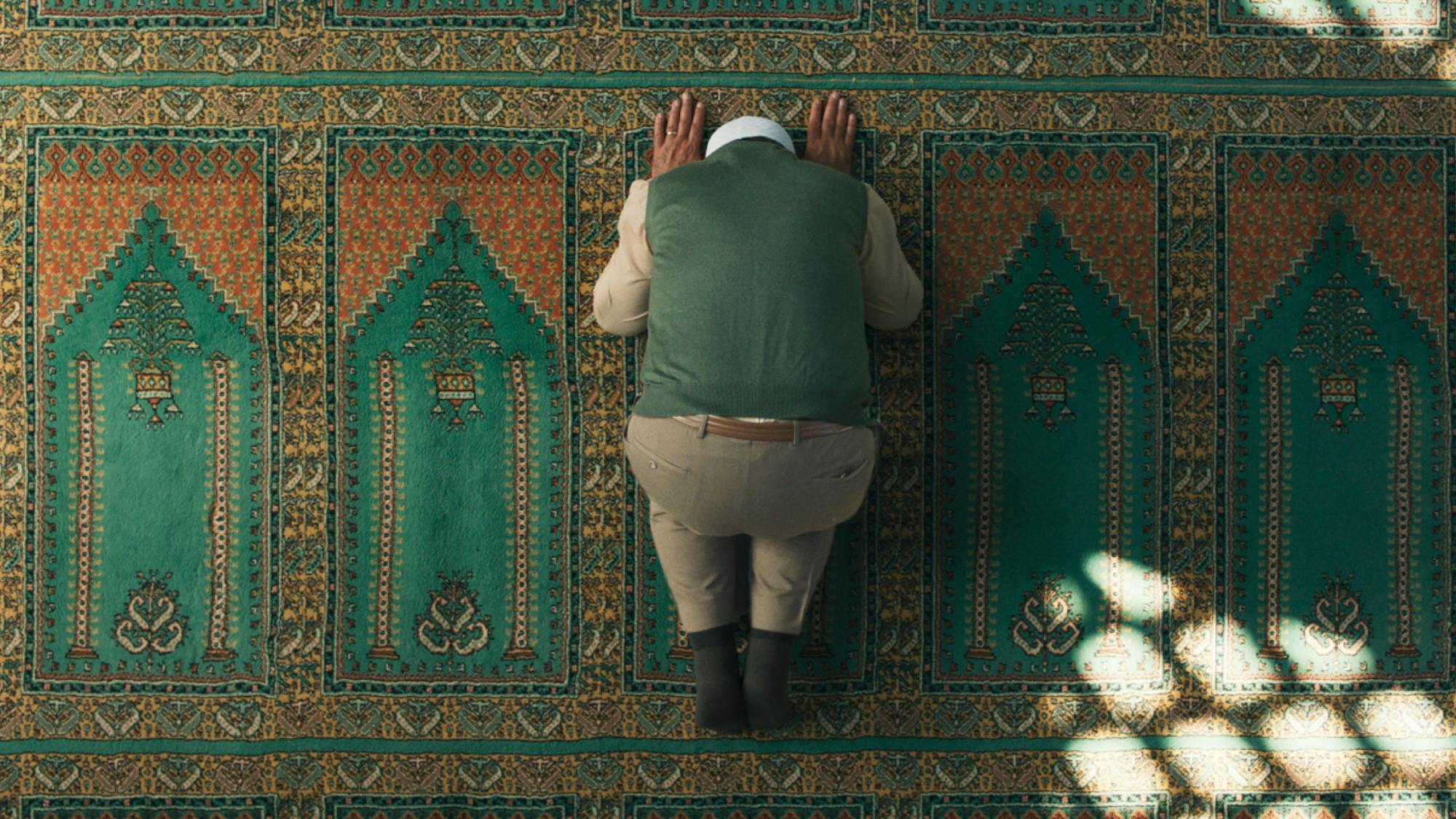
The Hodja (Settar Tanriöğen) in a moment of prayer
Tell me about casting Bir Başkadır. You love working with onscreen talent whom you have known for a long time.
BO: Yes, I do work with the same names; however, new people come on board too. There are a number of people whom I worked with for the first time on Bir Başkadır, and I’m so glad I did. Directing a play or producing a film or series is a great instrument of socialization for a person like me, whose real job is writing, thus spending much of his time alone. One would like to spend that production time with friends he is fond of. My greatest luck is those people are also incidentally very talented and reliable actors.
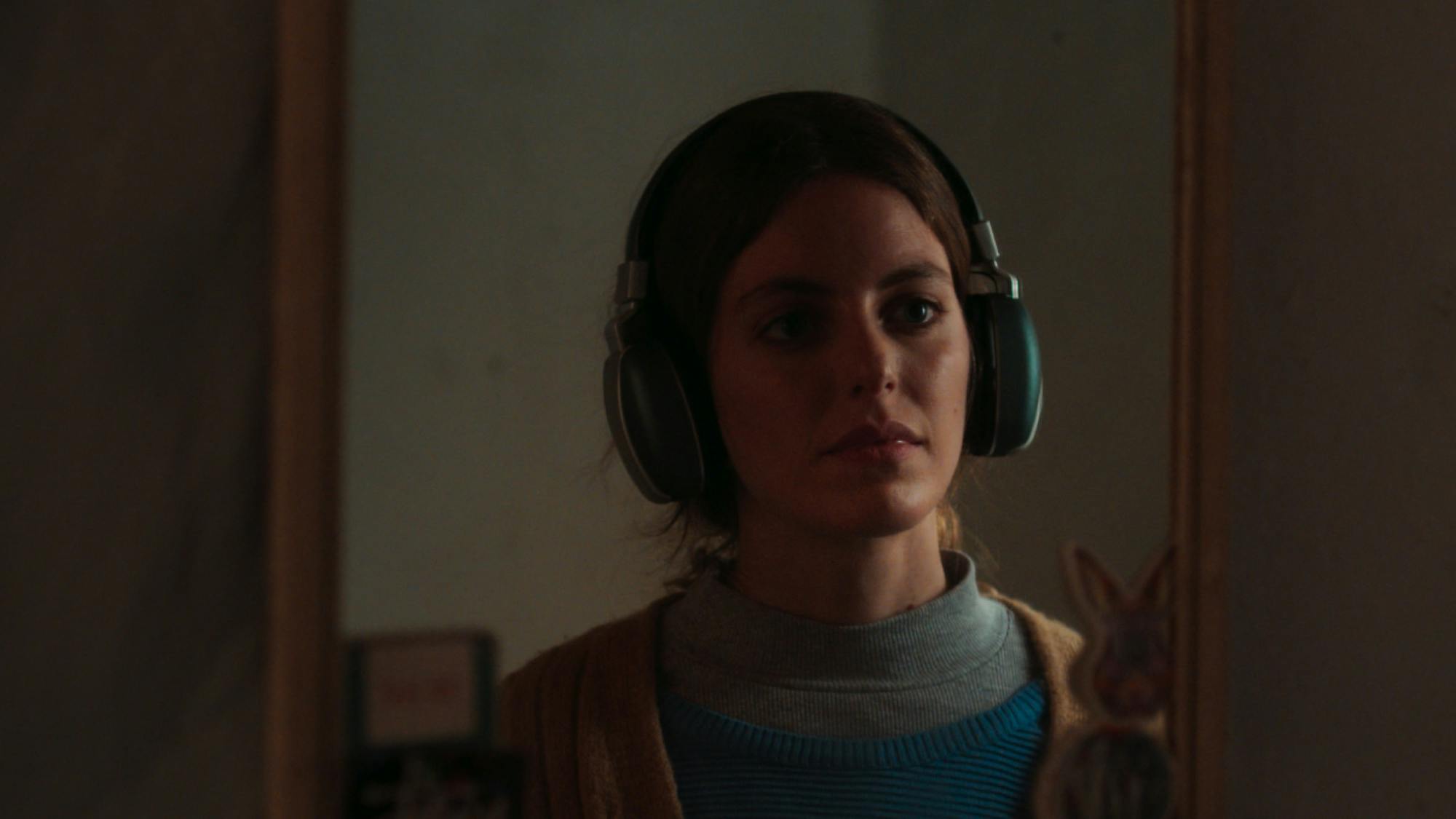
Bige Önal as Hayrünnisa
How were the table reads? How open were you to the cast’s criticisms or contributions?
BO: Table reads are always the most vital and enjoyable part of my job. Our rehearsals were generally long. For instance, I think we rehearsed the first therapy scene at the opening of Bir Başkadır for five months or so. Producing theater, TV, or film requires a crowd, and every single individual in that crowd owns the production. As one gets more professional, one needs to comprehend the value of being open to people’s opinions and suggestions. The way I see it, this is a task that requires becoming more amateur as you gain more experience.
Writing Bir Başkadır, I tapped into the opinions of many different people — primarily Ali Farkhonde, one of the executive producers of the series. When the rough cut was finished, I made so many people watch. I had lengthy conversations with my sociologist and psychologist friends. I really strove in my own way so that there would not be an impropriety, a mistake — which is not realistic at all; there is always something amiss. Sometimes the parts of truth, like an entrecôte just out of the freezer, want to grab you by the legs. And you might want to shake off that cold piece of meat; you might prefer to leave that knowledge all alone and go where imagination takes you. Rational thinking might disappear after a while. Actually, I believe it has to disappear to a great extent.
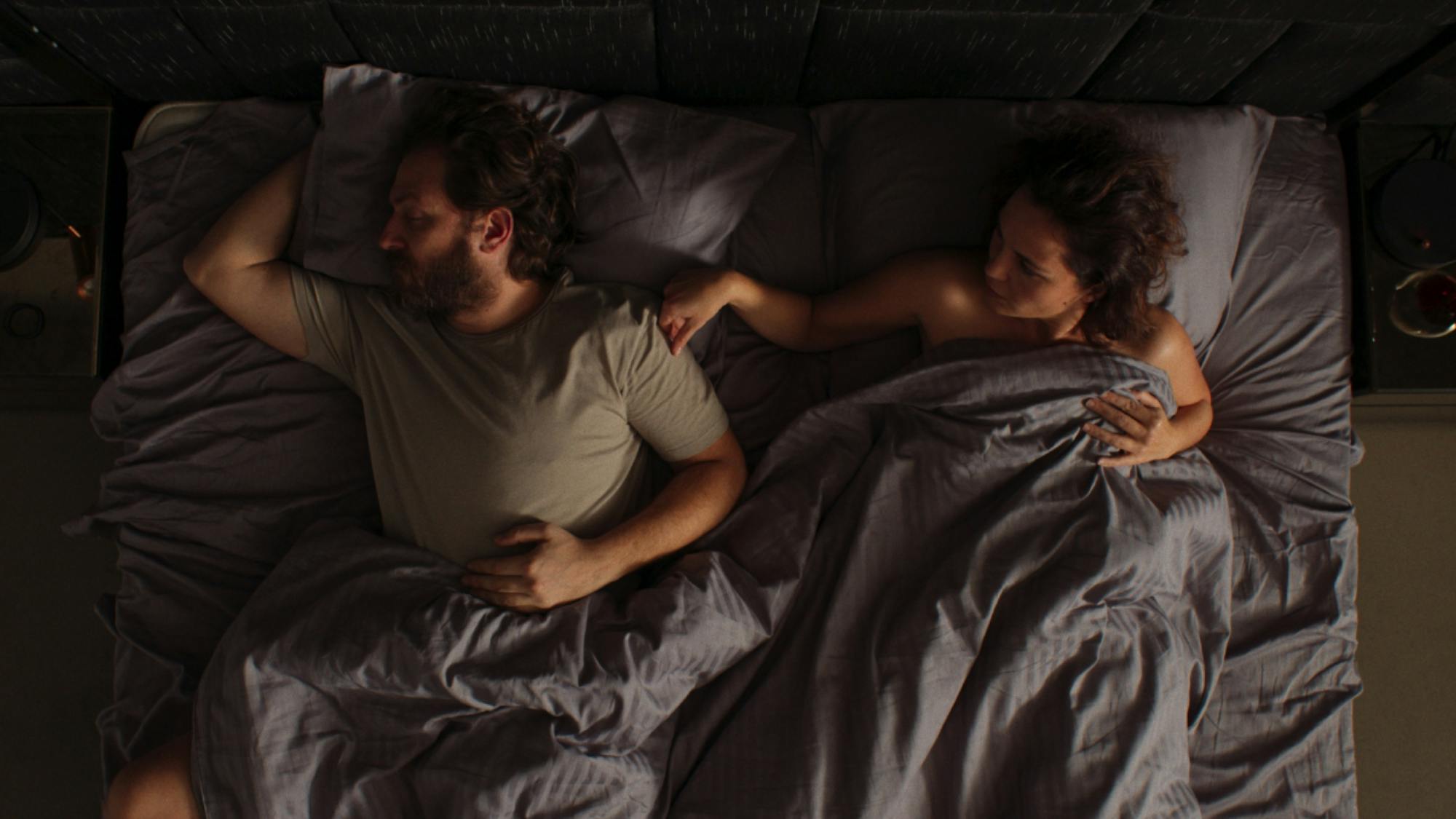
Sinan (Alican Yücesoy) and Gülbin (Tülin Özen)
I would like to ask about the scene in which Meryem (Öykü Karayel), our protagonist, tells Ruhiye (Funda Eryigit), her sister-in-law who is having a nervous breakdown: “Girl, come over here, let us dance a bit.” It might be one of the most real moments I’ve ever watched in my life. It makes me wonder if this is how we, as a society, resolve everything. Do you think we will find more realistic solutions in this way than by sitting down and talking?
BO: I’d say first we should dance a bit, then sit down and talk. Because afterwards we will be dancing all the time anyway.
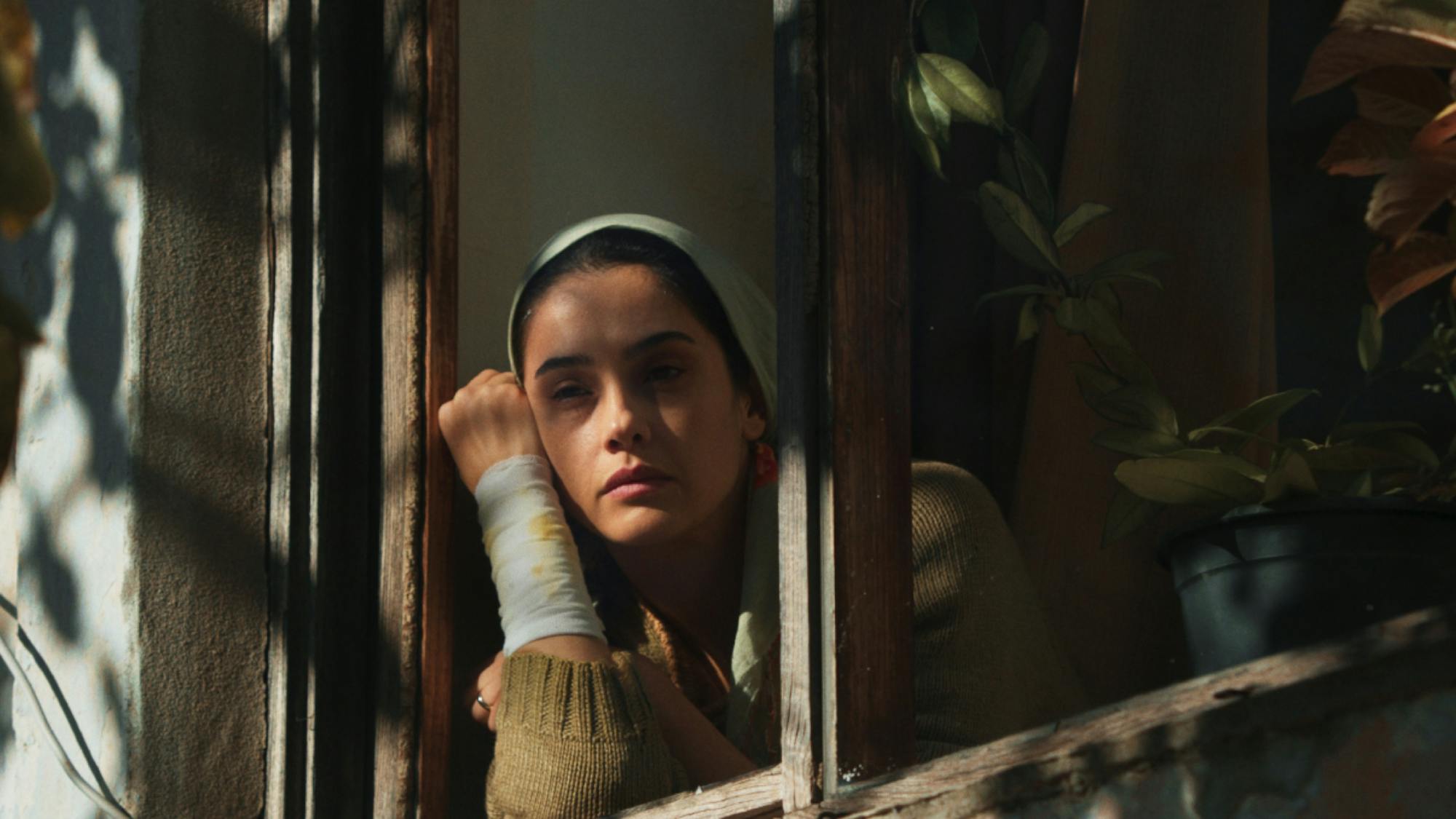
Ruhiye (Funda Eryiğit) looks out from her window
An important “actor” in the series is Istanbul. What do you think about today’s Istanbul?
BO: I wanted to portray the Istanbul I know. Sometimes people want to favor Istanbul in series and films via some illusive and touristic views. I understand them. They always want to feature the best parts and glorify the city. Yet I think favoring it in this way is the biggest injustice one could do to Istanbul. One should not look at Istanbul from the reverse side of the binoculars. Istanbul is a city that becomes more diversified as you get closer, and it becomes more festive as it gets more diversified.
How do you think Western viewers relate with the series?
BO: I understand the general impression is positive. But frankly, one inevitably cares more about the overall impression in his own hometown. What is spoken at home is always more important, particularly if you are writing about issues toward which the society could be sensitive, issues that could be deemed intimate.
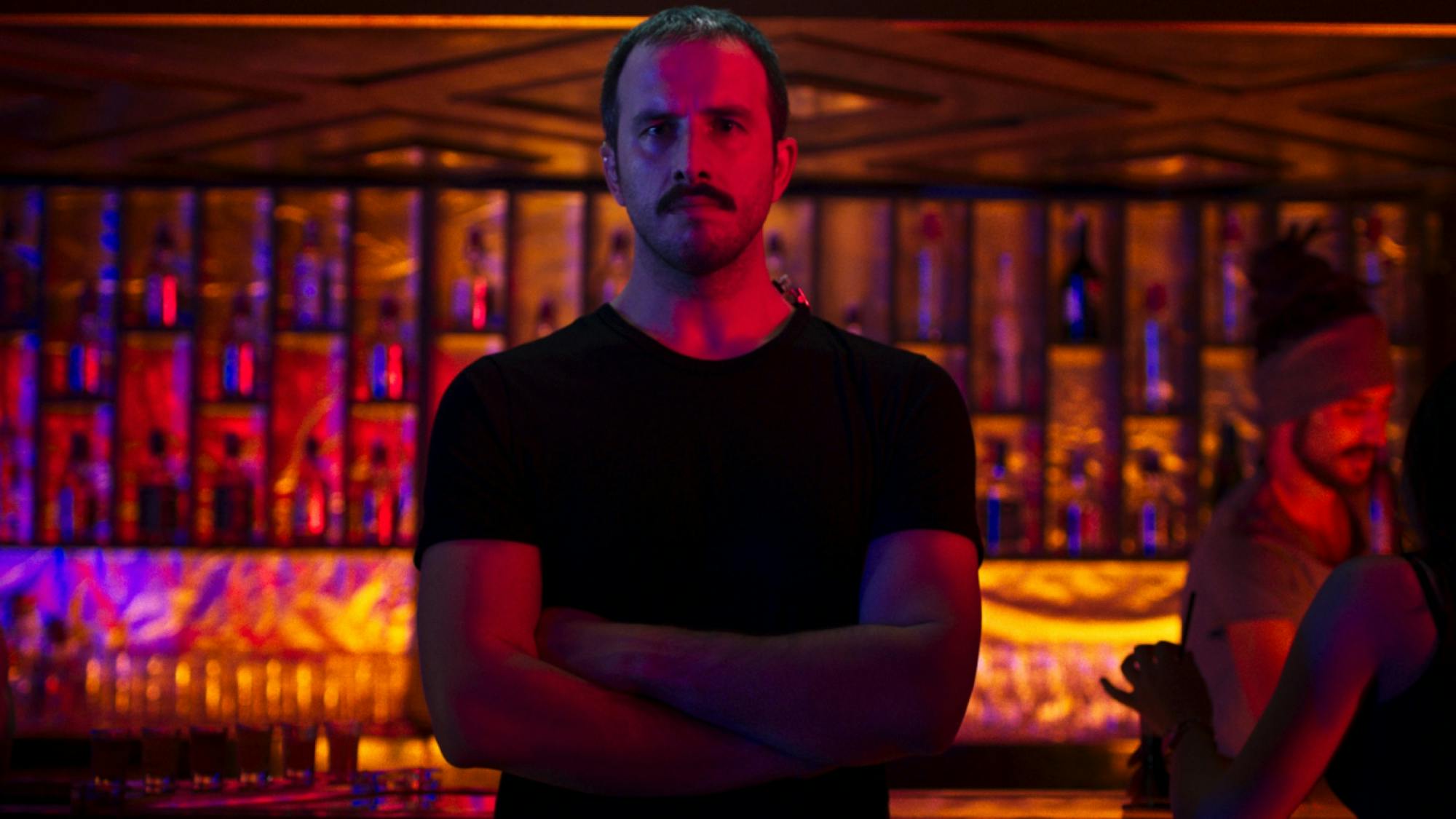
Yasin (Fatih Artman) at his job as a bouncer in an Istanbul nightclub
You wanted a happy ending for every character, in a sense. In all this polarization, did you want us to believe in happy endings, either big or small?
BO: If you’ll allow me, right at this very point I would like to recommend the book Hikayesini Arayan Gelecek (The Future Searching for Its Story) by Bekir Ağırdır. As always, Mr. Bekir combines the power of numbers and science with the power of his valuable perspective. He holds a lantern with a soft light toward our common future. The other reason I want to mention him is that I owe him a thank you. I did not have the chance to meet him personally, but since he is an intellectual person I have been following for many years, inevitably there are traces of his social musings in the script. In Peri’s (Defne Kayalar) line to Gülbin (Tülin Özen), where she says, “You and I live in an aquarium,” that aquarium is the one Bekir Ağırdır has been describing for years.
Regarding the question about the future, my answer is yes. There is a Turkey that I describe as “New Old Turkey,” which is a Turkey awaiting us in the future, a Turkey that will meet us in the future when both the old and the new complete their inevitable transformation. My dream is that there will be a higher feeling of unity and a lesser feeling of arrogance in that Turkey, wherever it might come from. Even waiting for such a Turkey is enjoyable. I will wait.
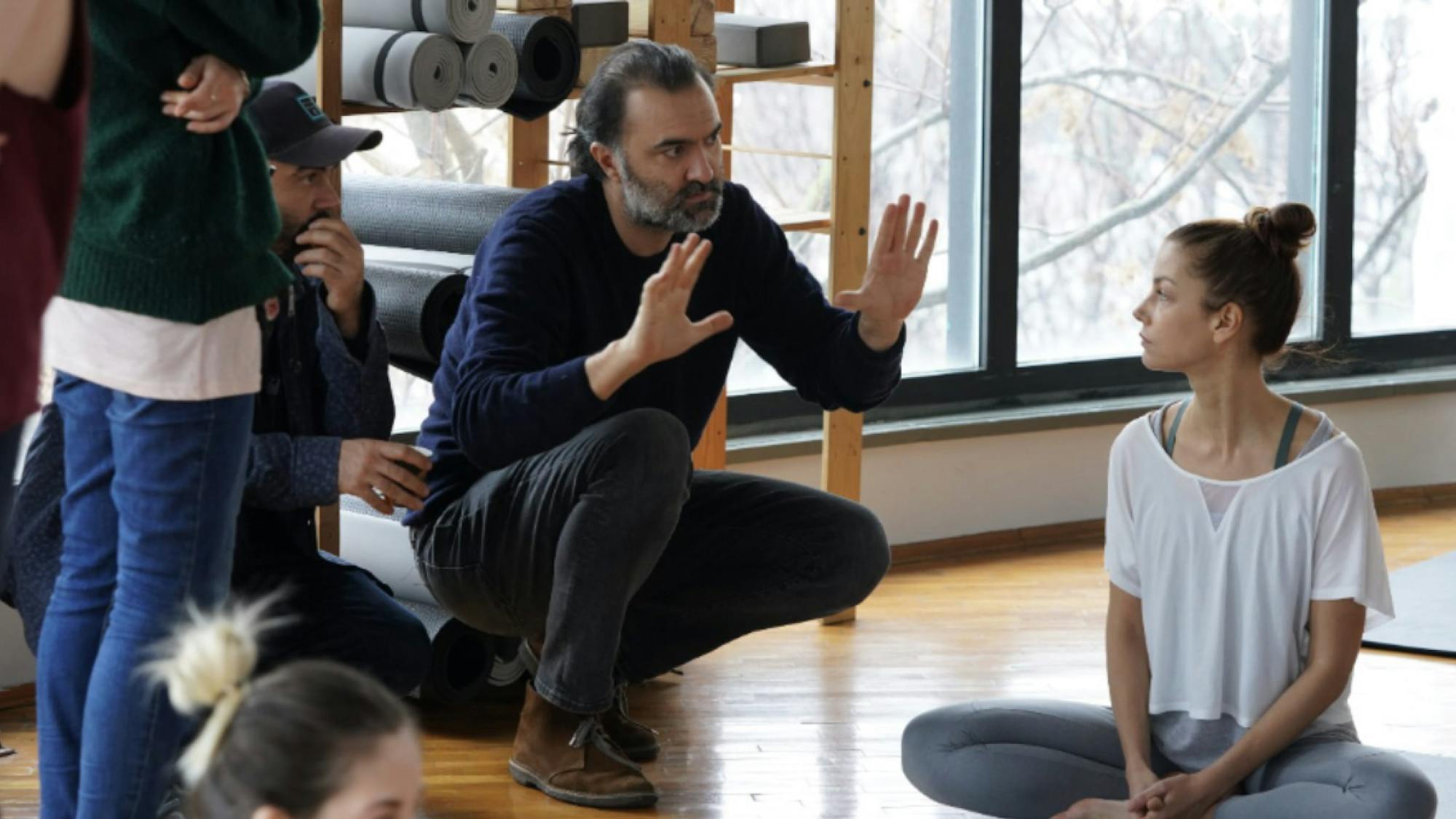
Berkun Oya directs his actors on the set of Bir Başkadır
